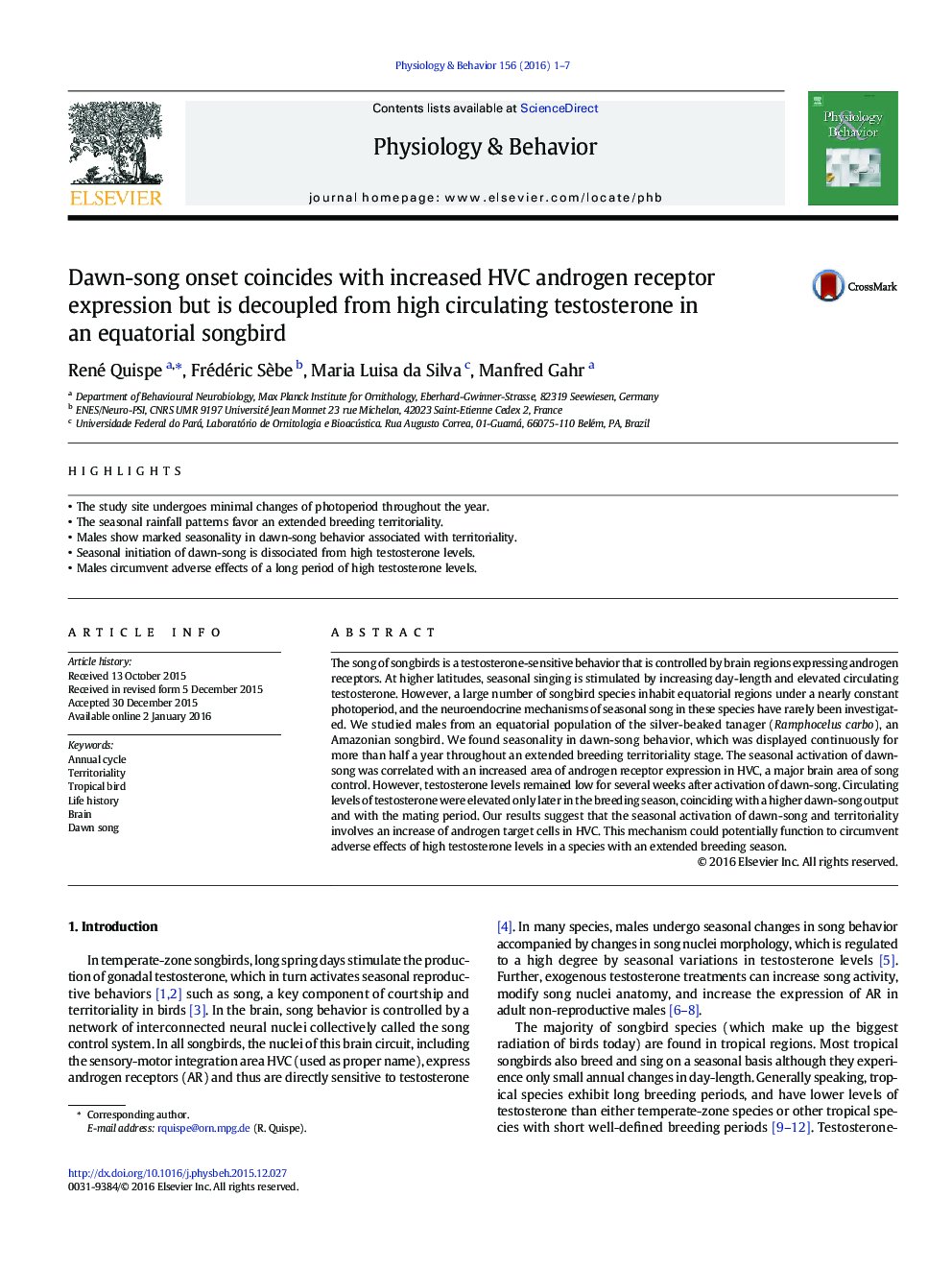| Article ID | Journal | Published Year | Pages | File Type |
|---|---|---|---|---|
| 5922972 | Physiology & Behavior | 2016 | 7 Pages |
â¢The study site undergoes minimal changes of photoperiod throughout the year.â¢The seasonal rainfall patterns favor an extended breeding territoriality.â¢Males show marked seasonality in dawn-song behavior associated with territoriality.â¢Seasonal initiation of dawn-song is dissociated from high testosterone levels.â¢Males circumvent adverse effects of a long period of high testosterone levels.
The song of songbirds is a testosterone-sensitive behavior that is controlled by brain regions expressing androgen receptors. At higher latitudes, seasonal singing is stimulated by increasing day-length and elevated circulating testosterone. However, a large number of songbird species inhabit equatorial regions under a nearly constant photoperiod, and the neuroendocrine mechanisms of seasonal song in these species have rarely been investigated. We studied males from an equatorial population of the silver-beaked tanager (Ramphocelus carbo), an Amazonian songbird. We found seasonality in dawn-song behavior, which was displayed continuously for more than half a year throughout an extended breeding territoriality stage. The seasonal activation of dawn-song was correlated with an increased area of androgen receptor expression in HVC, a major brain area of song control. However, testosterone levels remained low for several weeks after activation of dawn-song. Circulating levels of testosterone were elevated only later in the breeding season, coinciding with a higher dawn-song output and with the mating period. Our results suggest that the seasonal activation of dawn-song and territoriality involves an increase of androgen target cells in HVC. This mechanism could potentially function to circumvent adverse effects of high testosterone levels in a species with an extended breeding season.
